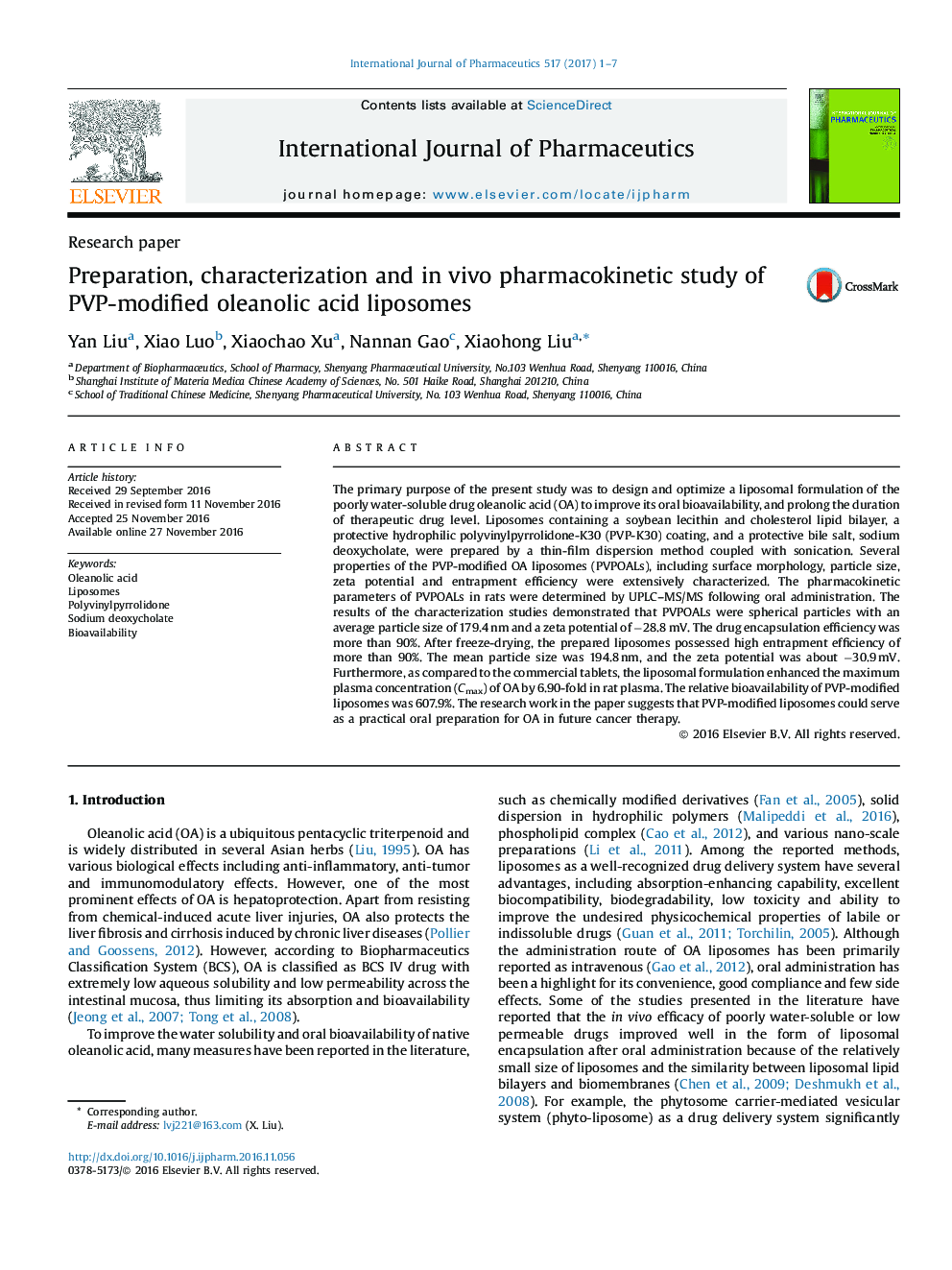| Article ID | Journal | Published Year | Pages | File Type |
|---|---|---|---|---|
| 5550752 | International Journal of Pharmaceutics | 2017 | 7 Pages |
The primary purpose of the present study was to design and optimize a liposomal formulation of the poorly water-soluble drug oleanolic acid (OA) to improve its oral bioavailability, and prolong the duration of therapeutic drug level. Liposomes containing a soybean lecithin and cholesterol lipid bilayer, a protective hydrophilic polyvinylpyrrolidone-K30 (PVP-K30) coating, and a protective bile salt, sodium deoxycholate, were prepared by a thin-film dispersion method coupled with sonication. Several properties of the PVP-modified OA liposomes (PVPOALs), including surface morphology, particle size, zeta potential and entrapment efficiency were extensively characterized. The pharmacokinetic parameters of PVPOALs in rats were determined by UPLC-MS/MS following oral administration. The results of the characterization studies demonstrated that PVPOALs were spherical particles with an average particle size of 179.4Â nm and a zeta potential of â28.8Â mV. The drug encapsulation efficiency was more than 90%. After freeze-drying, the prepared liposomes possessed high entrapment efficiency of more than 90%. The mean particle size was 194.8Â nm, and the zeta potential was about â30.9Â mV. Furthermore, as compared to the commercial tablets, the liposomal formulation enhanced the maximum plasma concentration (Cmax) of OA by 6.90-fold in rat plasma. The relative bioavailability of PVP-modified liposomes was 607.9%. The research work in the paper suggests that PVP-modified liposomes could serve as a practical oral preparation for OA in future cancer therapy.
Graphical abstractDownload high-res image (145KB)Download full-size image
